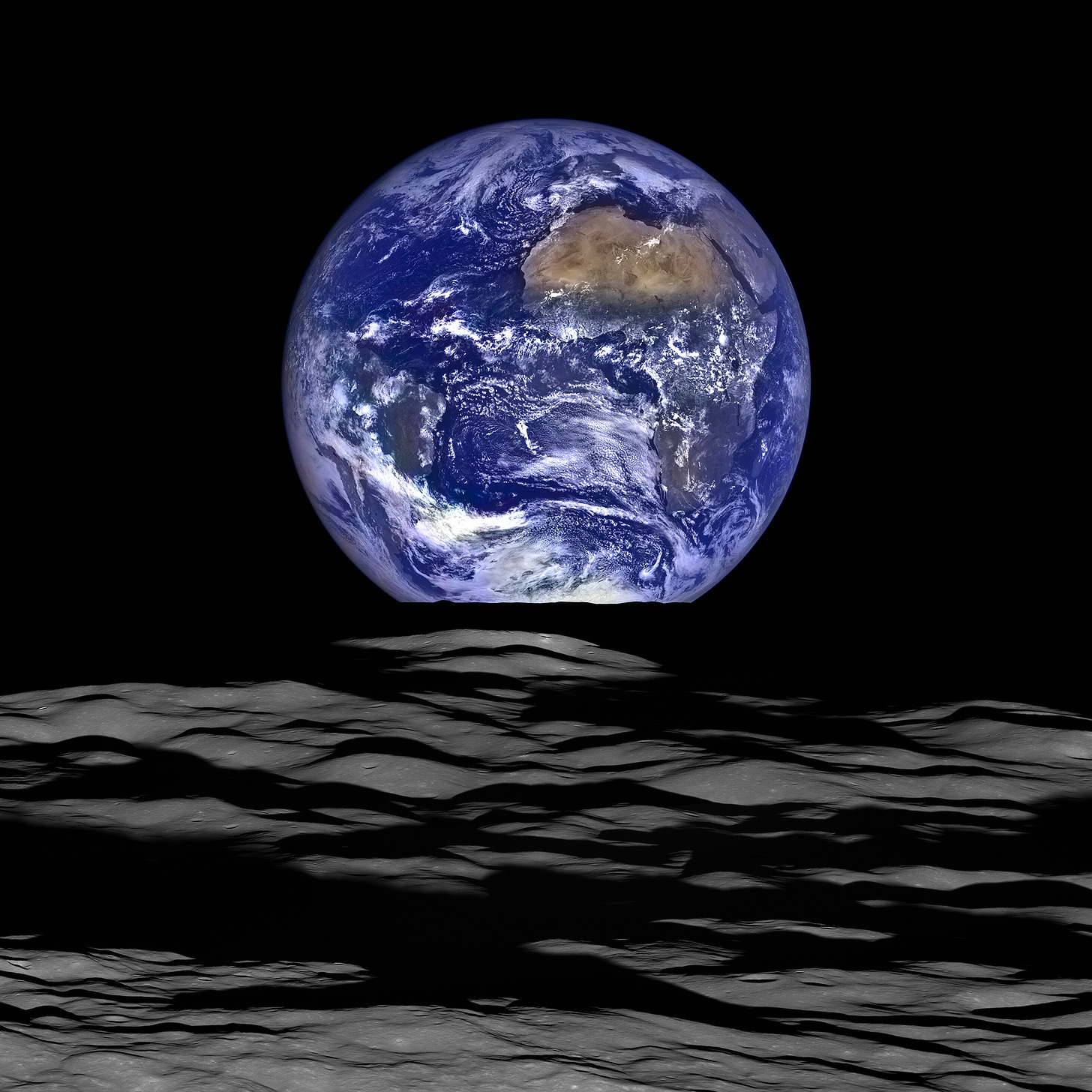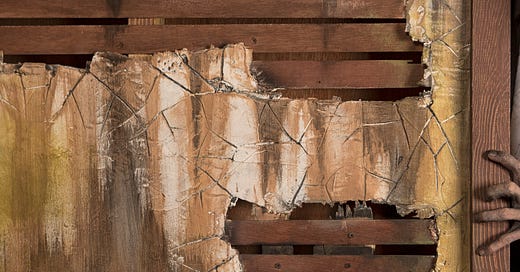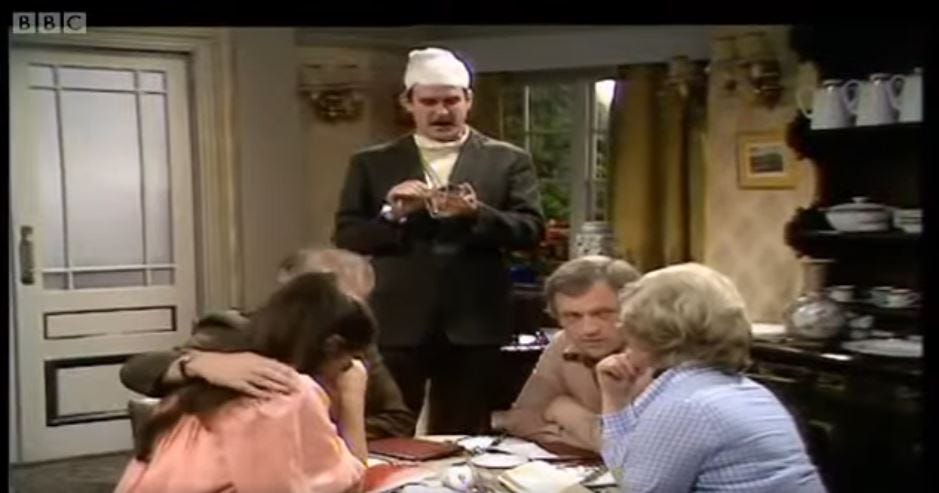This is the first guest post from Tom Christensen in a couple of years, with a different take on what I’ve been calling the “strongman problem.”
In zombie movies there are two kinds of survivor. There are the cooperators, who meet in town hall when the internet goes out, do inventories of food, put up fences and set up patrol schedules to kill all the zombies. In some movies, this works out; in most, some traitor lets in the zombies or some lazy idiot doesn't secure a piece of the fence.
Or, a warlord breaks in. The Warlord is the other kind of survivor: sometimes a local mayor who goes a little nutty (the Governor in The Walking Dead) or is just someone who decides to put on a hockey mask and drives around shirtless (Lord Humungous from The Road Warrior). Either way, the Warlord is, generally, successful.
For a time.
Trump is a Warlord. Conservatives and Magats may be stupid, but they aren't blind. The zombies are all around us. Wildfires, floods, hurricanes. We may be unwilling to admit the causes, but it's there. When we were growing up we didn't have wildfires smoking out entire coasts, or megastorms happening every year that threaten to flatten entire US cities.
So, the townspeople have decided, for the moment, that we don't want a cooperator. We don't want those weak-kneed wimps who tell us to put our names on the chore board. We want the Warlord who is going to tell us he's going to go seize the food, water, and gasoline from the town next door so we have a better chance to survive. We want the Warlord who is going to protect us from the towns who will try to raid us. We want the Warlord who is going to invade a sovereign neighbor country, which just so happens to have the most fertile soil in the world.
Of course, the Warlords never actually win, in the end. They are beheaded, eaten by the zombies, or defenstrated and replaced by their #2 (and then, usually, fed to the zombies). But their people were safe.
For a time.
Now, my turn, with a letter about zombies from nearly 11 years ago, also inspired by Tom—my son, by the way, and not the Columbia University China expert. While I wouldn’t have come up with the same metaphor, I think Tom is right, especially as I see how people of all political stripes ignore climate change.
For example, James Carville does not mention climate in his renewed pitch for making it the economy, stupid. Nor does Ruchir Sharma in nd this interesting forecast for 2025 from the Financial Times.
How about the Green parties?, you might ask. Here in the US the Green Party is an absurdity. Or, as someone just described the UK Green Party, a “bin fire.” I’ve lost touch with the UK Green Party but it certainly doesn’t have the influence we hoped for in 1992 (when John Cleese did the TV ads).
I’m reminded of this clip from John Cleese’s Fawlty Towers, which reflects how most politicians and other leaders are dealing with climate these days (“Don’t mention the War!”).
Storms, Zombies, and a Sustainable Future (February 2013)
It began to snow as we drove down the long stretch of Route 183 where there is no cellphone signal and you’d think you were in the middle of a western wilderness instead of in the most densely populated region of the United States.
My son and daughter and I were going to have supper with Bill (William H.) McNeill, who lives in a Connecticut village about half an hour’s drive from Great Barrington, Massachusetts. The big picnic basket on the back seat was packed with the makings of a Chinese meal: dumpling wrappers, two kinds of filling, and some spicy sauce.
As we passed isolated houses glittering with Christmas lights, we talked about living in a world of extreme weather and how we should prepare for the stormy times ahead. Within the past 18 months, there have been three major storms in the northeast of the United States.
In August 2011, a hurricane ripped up roads and rerouted rivers in the mountains of Vermont and the Adirondacks. In October 2011, two feet of soft snow took out power across a great swathe of the region, stopping train travel for days. I will never forget driving to Newark Airport the next day to make a flight to Beijing, an eerie pre-dawn trip through upstate New York where there were no lights at all, anywhere, and no food or gasoline to be had. And in October 2012, Hurricane Sandy struck New York City and the surrounding region, flooding lower Manhattan, leaving millions without power, and thousands homeless.
Bill McNeill celebrated his 95th birthday a few months ago and our weekly meals are every bit as important to me as he says they are to him. He is a formidable intellectual, justly renowned for his groundbreaking books, and we are 40 years apart in age. But we are kindred spirits, and his presence here has shaped Berkshire Publishing, enriched my life, and set an impossibly high bar for professors when Tom and Rachel went to college.
Part of our connection is a shared interest in community. Bill’s early bestseller, The Rise of the West, has the subtitle A History of the Human Community, and in later years he wrote a book about dance and drill, showing how “moving together in time” made it possible for humans to work and live together. I write about real-life and online communities and was senior editor of the four-volume Encyclopedia of Community.
Bill and I have both made efforts to apply our theoretical understanding of community to real life. I came to Great Barrington from London, in fact, because I thought small towns were the answer to sustainable future. Bill lives in a village that no longer has a general store, but he has close relationships with his neighbors and is a well-known local figure. Some years back he tried to get a dance circle going, and I recently started a neighborhood email bulletin board.
Neighbors are an important part of why Bill is able, at 95, to live alone in a large old house at the end of a road. He met one of his neighbors when he was shoveling snow a few years ago (he still shovels, but most of his snow-clearing is now focused on his car, which he uses to drive to the post office, grocery store, and doctor). He was in front of the house, intent on his work, when a man slowed his car, rolled down his window, and asked, “Could you use some help with that?”
Bill says he was offended that this stranger thought he needed help. But the stranger turned out to be a new neighbor up the road who came from place where neighbors help neighbors. No insult to Bill’s skill at shoveling was intended, and no comment about his capacity for independent management of his property. Bill now tells me that this really is the essence of neighborliness, and community: to help without being asked.
But living alone in an old house in a cold climate is not easy. Read Edith Wharton’s short novel Ethan Frome to see just how the Berkshire winters could make people crazy. Even in cozy and temperate England, Jane Austen’s characters liked to move to London or Bath in the winter. Modern communications and cars with four-wheel drive mitigate our isolation, but they depend on fossil fuels, as does keeping our homes warm.
Bill McNeill, like anyone with an old house, knows exactly where its sore spots are. When the temperature drops below freezing, he keeps the doors to the cupboard beneath his sink open, and sometimes puts a small lamp there to warm the air around the pipes. In my house, the vulnerable pipes are under the back kitchen and we use a portable electric heater to warm the air in the basement.
The real vulnerability of modern homeowners in a cold climate is the electrical supply. Indeed, we can have camp stoves to heat food, and with a woodstove or fireplace we can stay reasonably warm. But we cannot keep our pipes from freezing without electricity because furnaces burning oil or natural gas still need electricity to operate.
Bill has a generator, which uses propane gas to generate electricity in an emergency. This would keep his furnace, lights, refrigerator, and computer going for a couple of days, and in a lower blackout, in theory, more propane could be delivered. In years past, as an occasional occurrence, this wasn’t so bad. Now, in the post-Sandy world, we have to think again.
When “Superstorm” Sandy hit New York at the end of 2012, no one imagined all the ways it would affect the region, and the effects linger. My Manhattan home is still heated by a temporary boiler parked on the street outside, and the basement laundry room has yet to be refitted. A new and expensive apartment building nearby is closed for repairs expected to take months.
Up in the country, in the mountain town of Great Barrington, we were barely affected by Sandy, but our consciousness of vulnerability has changed our outlook. This suits Tom and Rachel admirably: like all young people, they’ve grown up with apocalyptic zombie movies, and Rachel has always been a bit of a survivalist, carrying around an old Army Survival Manual when she was young and reading and rereading My Side of the Mountain.
The provisions we were talking about as we drove to Bill’s that evening were quite ordinary: candles and lamps, a camp stove with propane cartridges, iodine for water sterilization (we have a spring-fed lake up the street), wood for our fireplace, a supply of easy-to-prepare food. Rachel, having worked for the Army National Guard over the summer, is keen to lay in a supply of MREs (Meals Ready to Eat), while I’m for polenta and dried porcini. We made plans for longer-term improvements, too: installing woodstoves, building cold frames for the garden, laying in serious food stores, and learning to drain the water pipes. We talked about buying a small generator before the next storm hit.
“But,” said Tom, who was visiting from Beijing, “think about what we’re doing here. Planning for ourselves and our house. And how much might we spend? A thousand dollars? Maybe a couple thousand? What if you multiply that $1,000 by all the households in the United States? You’d have over $100 billion to spend on the kind of infrastructure improvements that would protect all of us. Instead, we’re thinking individualistically instead of about long-term change.”
Tom was right. Our neighborhoods, towns, roads, and transport system are not designed for the world ahead. The electrical grid in the US is astonishingly vulnerable to wind – I look at the birdsnest of wires on the corner outside my house – and we have virtually no small-scale power generation to replace it. Our homes and cars guzzle energy, and we have done almost nothing to make use of passive solar heating or other innovative approaches.
While we’ll continue to prepare for the storms ahead (I’m even looking forward to trying an MRE one day), I’m now thinking about how we – as a country, and global community – can take on the challenge of climate change. This is something I’ve been writing about for over 20 years, and other people far more influential have been talking about it for much longer. But human beings are resistant to change in general, and we’re exceptionally resistant to this change because it means rethinking so much about the way we live. It means rethinking our belief in progress.
Most books about the global environment include a few pages or even a chapter at the end about what to do about the problems you’ve read about in the rest of the book. The usual advice is to “Write your congressperson,” which made me angry when I was a passionate newbie environmentalist. “How pathetic,” I thought, “environmental leaders think the best we can do is write a letter.” Then and now, I’ve looked for ways to do more, at home and at work and in the places where I live. Here are some ideas about how we can prepare for our common future.
Know your neighbors. In Great Barrington, I started a neighborhood email group that is amazingly active and useful. In recent weeks, I’ve borrowed a car and found a home for a knitting kit, and when we had houseguests who forgot their Mac charger, it was easy to borrow one for the weekend, almost instantly. There’s talk of a car share system, and I’ll bet we’ll see the “share economy” in action this spring, when gardening begins. New York is more difficult. There, I know the neighbors on our floor only by sight, and rarely see the same people in the elevators. I guess this is different in a coop building, but most people in cities live more anonymously than those in suburbs and small towns – it’s one of the attractions of the city, in fact. But in times of trouble, city dwellers need neighbors, too.
Think regionally. Without getting into peak-oil nuttiness or apocalyptic rhetoric, I think we should all be looking for a shift in thinking from our local governments. Great Barrington is a place where “local living” is a mantra, and it drives me a little nuts because we are in fact so entirely dependent economically on tourism and second-home owners. The good news is that planning for climate change generally brings projects that will promote a sense of community and improve quality of life. Infrastructure improvements that we can fund with appropriate taxes are a better option than propane generators and survival stores at every house. The rural-urban intersection is where a sustainable future lies.
Take the lead. Voting does matter, as do other forms of practical citizenship: supporting campaigns with donations, joining marches, attending events, and talking to other people. In addition, each of us should look for ways to take the lead. Virtually every industry and organization is going to be adapting, with new processes and new products, and new perspectives, and there are opportunities for people at every stage of life to make a difference – and career opportunities for young people, too, something that we at Berkshire Publishing are alert to as we develop publications on sustainability and China.
And whether you’re thinking of climate change or the zombie apocalypse, the book Apocalypse Tips, Antibiotics to Zombies, by Sam Sheridan is both amusing and full of practical ideas. “The most important thing is to clean a wound. If it’s bleeding, 20 minutes of pressure should induce clotting. Honey can act as a good short-term antiseptic. . . . Finally, remember that survival is a group endeavor. People don’t degenerate into wild animals when disaster strikes. That’s a myth pushed by Hollywood and people trying to sell you something. Sociologists find that the vast majority of people behave well in a crunch. So get to know your neighbors. The ideal components for a survival kit are a doctor, a mechanic, a farmer. Society, it turns out, is useful in times of disaster, too.”
Here’s wishing you a fruitful and joyous and very social New Year!
Books mentioned
Ethan Frome by Edith Wharton
Persuasion by Jane Austen
The Rise of the West by William H. McNeill
Moving Together in Time by William H. McNeill
The Human Web by William H. McNeill and J. R. McNeill
Encyclopedia of Community edited by Karen Christensen et al.
US Army Survival Manual ISBN 9780760747100
My Side of the Mountain by Jean Craighead George
Apocalypse Tips, Antibiotics to Zombies by Sam Sheridan











Interesting piece, Karen and Tom, I like it. The take on zombie movies is just the right analogy we need today on anything not just politics. (there's a typo at the beginning for "movie")
Fun to see Tom's zombie take, and I've often wondered why this has become such a dominant metaphor, and your point is spot on about the American Individualism slant being something pushed on us... the incessant storyline is like a drug dealers' free samples that are bad for you. The most important line in the post: "Finally, remember that survival is a group endeavor."